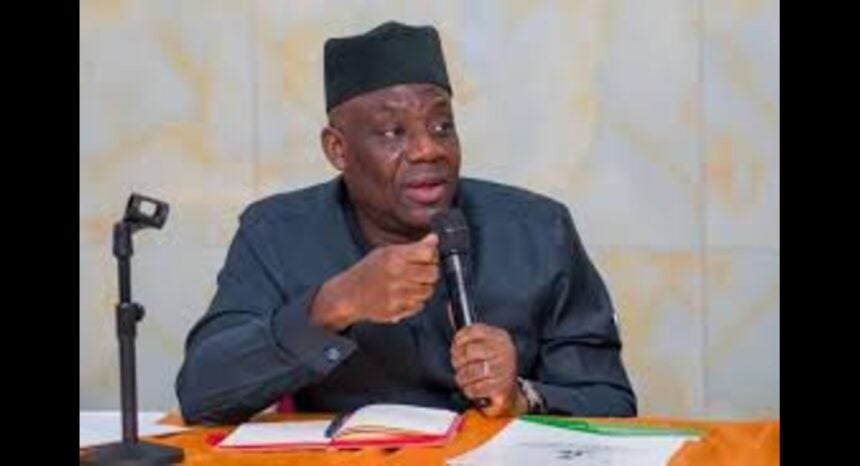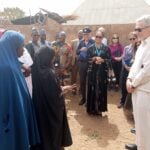..secures World bank $552.18 million to boost basic education quality
The Federal Government has attributed the over 14.8 million of out-of-school children in Nigeria to factors such as poverty, insecurity, and cultural barriers, urging strong partnerships by stakeholders including development partners to address the menace.
Minister of Education, Dr. Olatunji Alausa, stated this on Tuesday while declaring open the International Conference on Smart Education and Digital Literacy (ICSE 2025), organized by the Universal Basic Education Commission (UBEC).
Alausa highlighted various efforts of the current administration of President Bola Ahmed Tinubu to address the out-of-school syndrome.
He said, “Despite our progress, we recognize the persistent challenge of out-of-school children, with numbers exceeding 14.8 million.
“Factors such as poverty, insecurity, and cultural barriers compound this issue.
ALSO READ: Insecurity: North-East Govs to enrol Almajiris, out-of-school children in formal education
“Through HOPE-EDU and NESRI, we are scaling up access, improving infrastructure, and working with communities to bring every child into school and provide quality education.
“Let me affirm our unwavering commitment to driving these reforms to fruition.
“We will continue to rely on strong partnerships with UBEC, our state counterparts, development partners, and the private sector,” he stated.
He disclosed that under HOPE for Quality Basic Education for All (HOPE-EDU) initiative, the government has secured support from the World Bank and the Global Partnership for Education, to the tune of $552.18 million for the programme to enhance foundational learning for over 29 million children and train more than 500,000 teachers using a performance-based financing model.
He described the theme of the conference “Empowering African Smart Education through Emerging Technologies,” as apt, saying it aligns strongly with the strategic priorities of Nigeria’s education sector under the Renewed Hope Agenda of President Tinubu.
Executive Secretary of UBEC, Aisha Garba on her part, said the mandate of the Commission is to ensure equitable, inclusive, and quality basic education for every Nigerian child.
He maintained that in a world increasingly defined by technology, fulfilling this mandate demands that the country rethinks education delivery, reimagine learning environments, and embrace innovation to bridge learning gaps and unlock the potential of every child.
“Across the world, countries are repositioning basic education as a platform for national renewal: In Finland, school autonomy and teacher empowerment are central to system-wide excellence.
“In Singapore, data is used not to punish schools but to support and improve them.
“Rwanda is using AI and integrating community ownership into rural learning delivery; Kenya has mainstreamed digital literacy through nationwide device deployment and teacher training.
“Under the Renewed Hope Agenda, school empowerment is a mission—resourced, measurable, and already changing lives,” she stated.
She emphasised the commitment of the Federal Government to leverage on technology to transform basic education, saying have moved beyond simply introducing technology into our schools; “we are building a systematic, sustainable model for integrating digital innovation into teaching and learning”.
According to the Executive Secretary, ICSE 2025 platform offers vital opportunity for the nations to share models, forge partnerships, and chart a bold, collective vision for the future of education across Africa.






